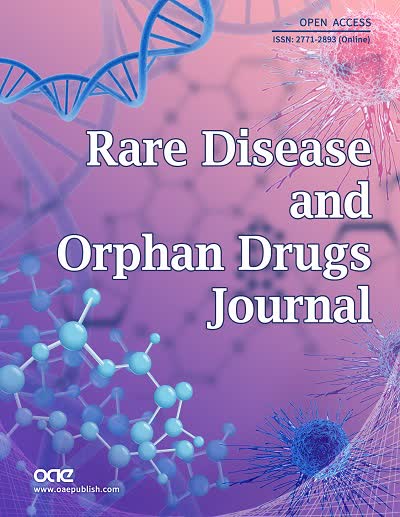
Topic: Prader-Willi Syndrome: Clinical, Genetic, and Endocrine Research
A Special Issue of Rare Disease and Orphan Drugs Journal
ISSN 2771-2893 (Online)
Submission deadline: 15 Nov 2024
Guest Editor(s)
Prof. Maurizio Delvecchio, PhD
Department of Applied Clinical and Biotechnological Sciences, Università dell'Aquila, L'Aquila, Italy.
Special Issue Introduction
Prader-Willi syndrome (PWS) is a complex genetic disorder occurring in 1 out of every 20,000-30,000 live births. The basic PWS phenotype is associated with the loss of expression of imprinted genes on the paternal copy of chromosome 15q11.2-q13, most commonly due to deletions in this region of the paternal chromosome 15 or maternal uniparental disomy of chromosome 15; rare imprinting defects account for the remaining cases. The functions of the few imprinted genes in this region and their relationship to the PWS phenotype have not been fully defined. Individuals affected by PWS suffer from decreased muscle mass and severe hypotonia which is evident in utero, manifesting as poor feeding and failure to thrive in infancy, continuing throughout life, contributing to risks for breathing and respiratory impairment, and severe neuromuscular scoliosis. Muscle function improves to some extent during early childhood, coincident with the development of characteristic hyperphagia and rapid gain in body fat, often leading to severe obesity and further increasing the risks for physical and medical disorders. As hyperphagia and obesity worsen, there is a paradoxical decline in height velocity, resulting in relative or absolute short stature. Another feature of PWS is hypothalamic hypogonadism, which often presents as micropenis and/or cryptorchidism, incomplete pubertal development, and menstrual disorders. In addition, virtually all affected individuals experience lifelong cognitive delays, and many develop severe behavioral and psychiatric abnormalities.
Growth hormone (GH) deficiency, which can be demonstrated in most individuals with PWS, may contribute to short stature but is probably not the cause of other features of the syndrome. However, GH treatment has been shown to not only benefit childhood growth, but also increase functional muscle mass, improve breathing and respiration, and potentially improve neurodevelopment, particularly if started in infancy. Growth hormone was first marketed for the treatment of PWS in 2000 based on its beneficial effects on growth and hypotonia, and remains the only pharmaceutical with specific regulatory approval for the treatment of PWS.
Recent developments in PWS-related research have increased the scientific understanding of this condition and may lead the way to new treatment options. Additionally, progress in early diagnosis, including the possibility of newborn screening, may eventually solve the ongoing problems of late diagnosis and treatment. This Special Issue aims to collect high-quality papers regarding Prader-Willi syndrome, focusing on the current understanding of this condition and directions for future research and treatment.
Growth hormone (GH) deficiency, which can be demonstrated in most individuals with PWS, may contribute to short stature but is probably not the cause of other features of the syndrome. However, GH treatment has been shown to not only benefit childhood growth, but also increase functional muscle mass, improve breathing and respiration, and potentially improve neurodevelopment, particularly if started in infancy. Growth hormone was first marketed for the treatment of PWS in 2000 based on its beneficial effects on growth and hypotonia, and remains the only pharmaceutical with specific regulatory approval for the treatment of PWS.
Recent developments in PWS-related research have increased the scientific understanding of this condition and may lead the way to new treatment options. Additionally, progress in early diagnosis, including the possibility of newborn screening, may eventually solve the ongoing problems of late diagnosis and treatment. This Special Issue aims to collect high-quality papers regarding Prader-Willi syndrome, focusing on the current understanding of this condition and directions for future research and treatment.
Submission Deadline
15 Nov 2024
Submission Information
For Author Instructions, please refer to https://www.oaepublish.com/rdodj/author_instructions
For Online Submission, please login at https://oaemesas.com/login?JournalId=rdodj&IssueId=rdodj240429
Submission Deadline: 15 Nov 2024
Contacts: Stella Wang, Assistant Editor, assistant_editor@rdodjournal.com






